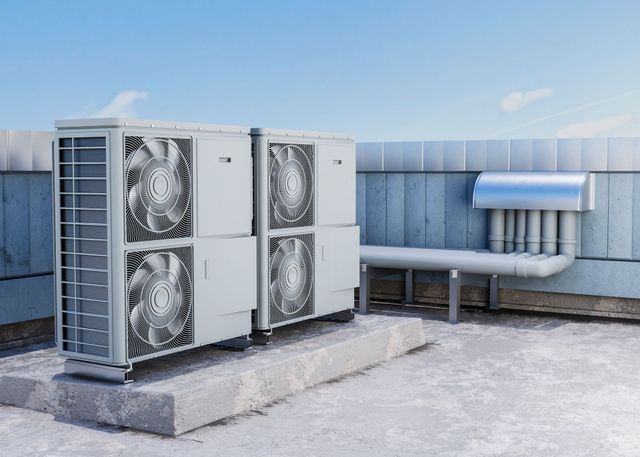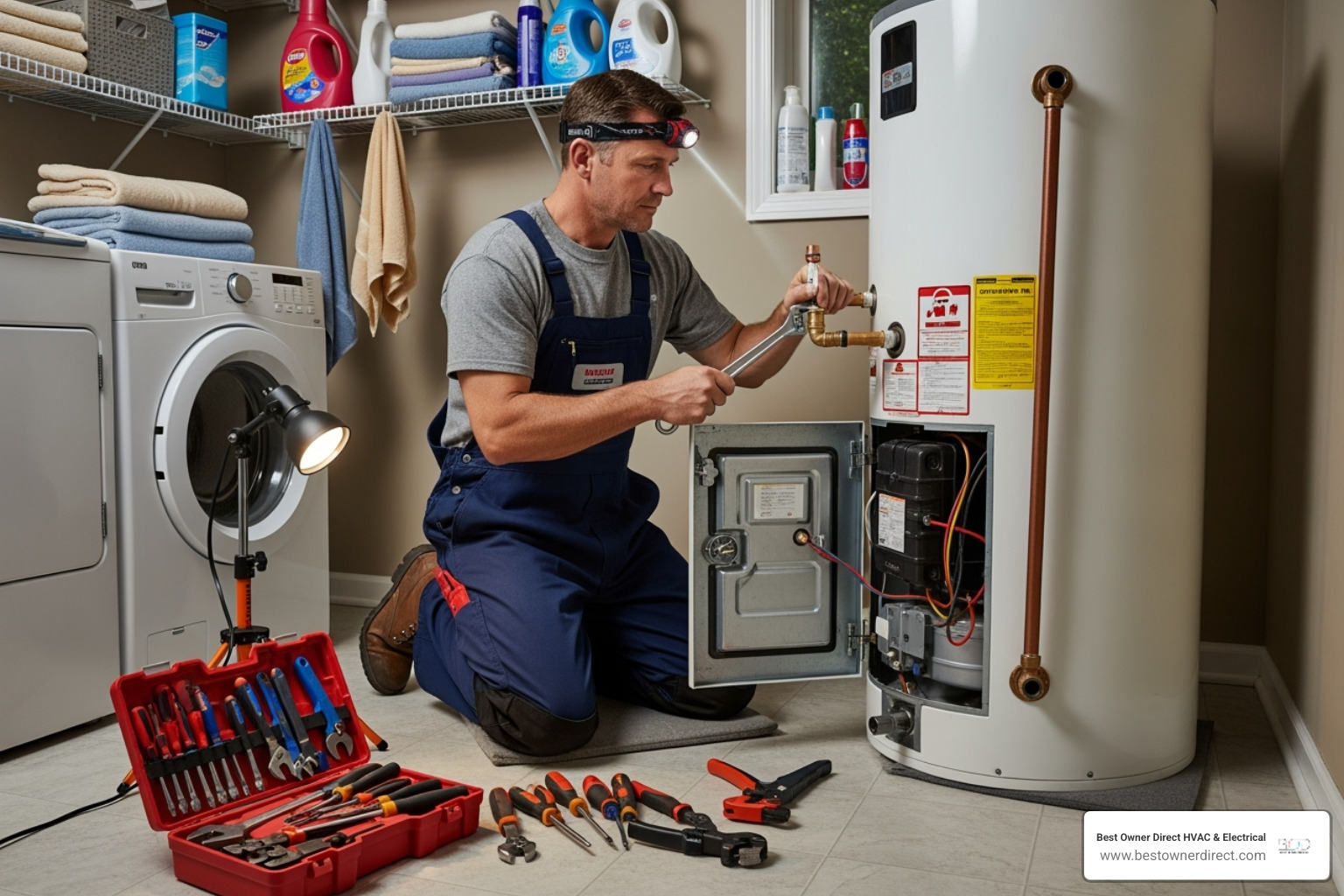Menu
Warning Signs of AC Failure for Your Business
Balancing Energy Efficiency and Comfort in Commercial Buildings When the seasons transition, and temperatures fluctuate, commercial buildings in Oregon face the demanding task of maintaining comfort while conserving energy. Best Owner Direct, your trusted HVAC partner, unravels the mystery behind early warning signs of AC failure.

Balancing Energy Efficiency and
Comfort in Commercial Buildings
When the seasons transition, and temperatures fluctuate, commercial buildings in Oregon face the demanding task of maintaining comfort while conserving energy. Best Owner Direct, your trusted HVAC partner, unravels the mystery behind early warning signs of AC failure.

In the vibrant cities of Washington County, commercial buildings stand tall, not just as infrastructural marvels but also as the lifelines of business dynamics. Ensuring a comfortable indoor climate is pivotal for maintaining the productivity of those within these structures. With seasonal changes come the inherent challenges of regulating indoor temperatures while controlling energy bills.
But what happens when your trusted air conditioning system starts betraying your commercial needs? An unexpected AC failure can throw your energy expenses off the chart while plummeting the comfort of your establishment's inhabitants. And as every savvy business owner knows, comfort and productivity go hand in hand.
We understand the importance of staying ahead of the curve at Best Owner Direct. The best approach to HVAC problems is a proactive one. Recognizing the early signs of an AC system gearing towards failure can save commercial buildings from unanticipated downtimes, soaring energy costs, and compromised comfort.
In this article, we delve deep into the signals your AC system sends before an impending breakdown. We aim to arm building managers and owners with the knowledge they need to take swift action. By identifying these signs, we ensure that Hillsboro's commercial hubs remain energy-efficient and comfort-centric all year round.
Stay tuned as we unpack the nuances of early AC warning signs, specifically tailored for the unique demands of commercial spaces.
Air Conditioning System is Blowing Warm Air
In commercial HVAC, there's nothing more frustrating than an air conditioning system blowing warm air when it should produce a refreshing, cool breeze. This affects the comfort of your commercial space and can have a tangible impact on productivity and the overall atmosphere.
Several factors might be causing your AC system to malfunction in this way:
- Thermostat Settings: Sometimes, the problem is as simple as incorrect thermostat settings. Ensure it's set to "cool" and the desired temperature is below the current room temperature.
- Dirty or Blocked Condenser Coils: The condenser unit, usually located outside, has coils that can get covered in dirt, leaves, or other debris. This obstruction can affect the unit's ability to release heat, causing the system to blow warm air.
- Low Refrigerant Levels: The refrigerant cools the air within the AC system. If its levels are low, usually due to leaks, the system can't cool air efficiently.
- Faulty or Overloaded Compressor: The compressor is the heart of your AC unit. If it's struggling, your system might be unable to produce cool air.
Strange Odors When AC Turned On
A well-functioning AC unit should deliver clean, odorless air. So, when your commercial building's air conditioning emits strange smells, it indicates something is amiss.
Some potential causes and solutions include:
- Mold or Mildew Growth: If moisture gets trapped in the system, it can lead to mold or mildew growth, producing a musty odor. Regular cleaning and servicing are crucial to prevent these growths.
- Burnt Electrical Smells: A distinct, burnt odor could signify an electrical problem or an overheating component. This is a serious concern, requiring immediate attention to prevent potential hazards.
- Decomposing Matter: Sometimes, small animals or insects can find their way into the ducts or other parts of the AC system and get trapped. As they decompose, they can produce a foul odor.
- Dirty or Clogged Filters: Over time, AC filters capture a lot of dust, dirt, and debris. If not changed regularly, they can produce a dusty or stale smell.
Noises Coming from the Indoor Unit
An efficiently running commercial HVAC system should operate relatively silently, fading into the background ambiance of a bustling business space. So, when you hear unusual noises from the indoor unit, it's a sign that intervention may be required.
Here's a brief overview of the noises you might encounter and their potential implications:
- Rattling or Vibrating Sounds: This can often point to loose parts within the unit or debris caught in the system. Regular maintenance can keep these sounds at bay.
- Buzzing Noises: Such sounds could be due to electrical issues, unbalanced fan blades, or a failing motor. These require a professional's touch.
- Squealing or Whistling: Often, this indicates problems with the fan belt or the blower motor. Early detection can save significant repair costs in the long run.
- Banging or Clanking: These alarming sounds might indicate that a part inside the AC has become loose or disconnected. Prompt attention can prevent further damage.
Leaking Around the Unit
Regarding commercial HVAC systems, any visible leak is a red flag. Not only do leaks indicate potential AC system problems, but they can also lead to structural damage and mold growth, compromising the health of building occupants.
Here are some common causes of leaks:
- Clogged Drain Lines: Over time, dirt, dust, and mold can block the condensate drain line, leading to water backup and subsequent leaks.
- Damaged Drain Pan: If the drain pan, which collects condensation from the AC, is rusty or damaged, it can result in leaks.
- Low Refrigerant Levels: The unit's pressure drops when refrigerant levels drop, causing it to freeze. When it eventually melts, it can cause excessive water leakage.
- Faulty Installation: If your AC unit isn't installed correctly, especially the condensate drain, it could lead to water leaks.
Higher Utility Bills
An unexpected surge in utility bills is more than just a dent to your commercial establishment's finances. It often serves as a silent alarm, indicating underlying inefficiencies in your HVAC system. When your AC is not functioning optimally, it has to work harder to maintain desired comfort levels, leading to increased energy consumption.
Several factors can contribute to this spike:
- Aging HVAC System: As units age, they become less efficient, requiring more energy to provide the same comfort level.
- Dirty or Clogged Filters: Reduced air circulation forces the system to exert more, driving up energy costs.
- Leaky Ductwork: Escaping air means your system must work overtime to compensate, using more power.
Best Owner Direct recommends regular HVAC check-ups to address any energy-draining issues and keep utility bills in check for businesses in Hillsboro looking to maximize their operational efficiency.
Weak Airflow from Your Vents
One of the most palpable indicators of potential HVAC issues in a commercial space is weak airflow from vents. Reduced airflow compromises comfort, leading to uneven temperature distribution.
Potential causes include:
- Clogged Filters: Filters capture dust and debris over time, impeding air circulation.
- Faulty Blower Motor: If the motor isn't working correctly, it can't propel air effectively through the vents.
- Ductwork Issues: Leaks or blockages in the ducts can severely restrict airflow.
In a dynamic business environment, maintaining consistent comfort is pivotal. Best Owner Direct ensures optimal airflow, providing routine maintenance and specialized solutions for all HVAC challenges.





